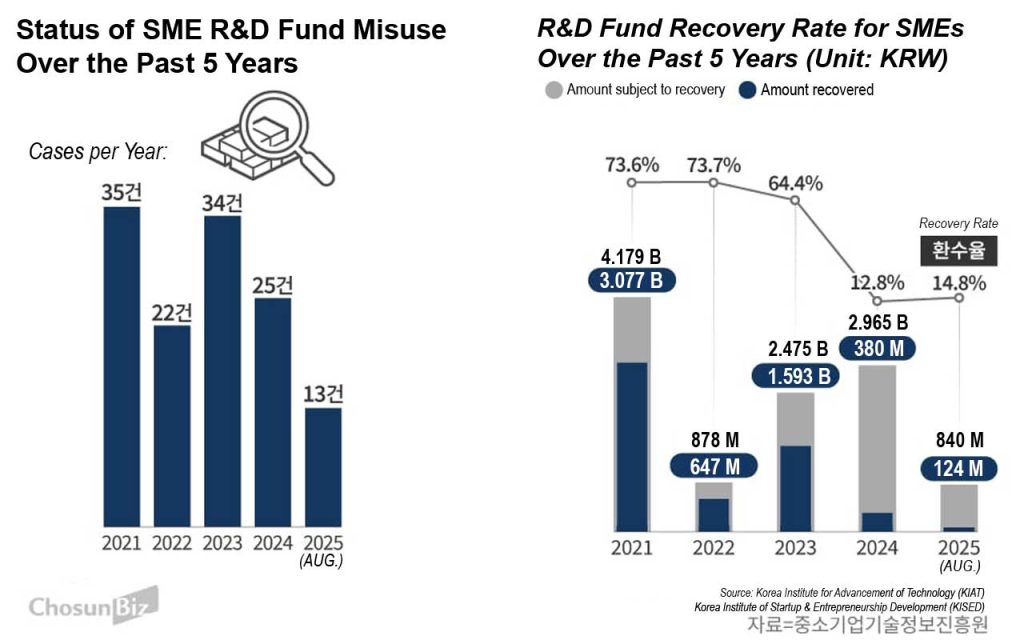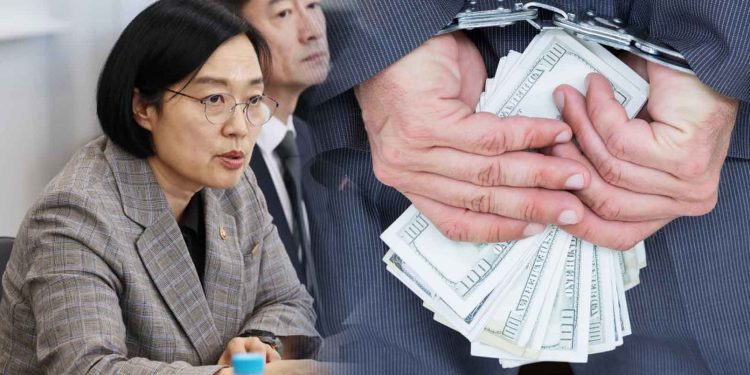Korea is entering a defining moment in its innovation policy. With a record KRW 2.2 trillion SME R&D budget, the government is signaling bold intent to strengthen the SME ecosystem and position Korea as a global tech powerhouse. Yet behind the optimism lies a structural challenge—ensuring that public innovation funding translates into genuine, accountable growth.
Korea’s New ₩2.2 Trillion Fund for SME R&D Programs
The Ministry of SMEs and Startups (MSS) has announced a record KRW 2.2 trillion (about $1.6 billion) investment in small and medium enterprise (SME) research and development (R&D), marking Korea’s largest innovation budget to date.
The funding expands flagship programs such as TIPS (Tech Incubator Program for Startup) and introduces enhanced global initiatives designed to help Korean startups scale beyond domestic markets.
Under the plan, startups selected for TIPS will receive up to KRW 800 million over two years, while high-performing participants can advance to Scale-up TIPS with up to KRW 3 billion in additional support. Startups with strong overseas traction will also be eligible for Global TIPS, providing as much as KRW 6 billion over four years.
To streamline participation, the ministry will reduce the administrative load on SMEs by requiring only essential documentation during the application phase and verifying additional materials later through government data systems.
Balancing Ambition and Accountability in SME Innovation Policy
The record SME R&D budget reflects Korea’s strategic bet on innovation as a key driver of national competitiveness, particularly in emerging sectors such as AI, deep tech, and green mobility.
However, analysts warn that while larger and more accessible R&D funding accelerates early-stage innovation, it also increases the risk of fund misappropriation if oversight systems remain weak.
Professor Kwak No-sun from Sogang University’s Department of Economics said that Korea’s current R&D drive is critical for growth, but sustainability depends on continuous evaluation.
“Since these R&D projects focus on core industries like AI and deep tech, they’re essential for finding Korea’s next growth engines. But if support ends at initial funding without follow-up evaluation, it inevitably becomes easy money for opportunists.”
Recurring Misuse Undermines R&D Integrity
Despite multiple reforms, misuse of R&D funds by SMEs has remained persistent.
According to data submitted to the National Assembly’s Industry, Trade, and SMEs Committee, there were 129 cases of R&D fund misuse over the past five years, totaling KRW 11.3 billion (approx. USD 8.2 million).
The number of cases peaked in 2021 (35 cases), with 22 in 2022, 34 in 2023, and 25 in 2024—indicating a consistent pattern.
By type, embezzlement of personnel expenses accounted for KRW 4.6 billion across 58 cases, while false supply or inflated pricing of materials made up KRW 4.4 billion in 39 cases.
Even more concerning is the declining recovery rate of misused funds: from 73.6% in 2021 to 60.8% in 2024, showing weakening financial enforcement.

The SME R&D Budget Regulation Dilemma
While stricter compliance is essential, some experts warn that overly rigid controls could burden legitimate innovators.
Lee Dong-joo, Vice President of the Korea Institute for SMEs and Startups (KOSME), explained that several safeguards are already in place.
“Authorities have introduced measures such as penalties for fund misuse and dedicated R&D accounts that restrict spending to approved purposes. But adding more layers of regulation could inconvenience honest SMEs while failing to stop those determined to cheat.”
He stressed the need for stronger post-grant verification and transparent auditing.
“Every company that receives R&D funding must provide proof of expenditure, receipts, and regular updates. The challenge is maintaining this without slowing innovation.”
The SME R&D Budget Push: A Test of Korea’s Global Innovation Credibility
The issue extends beyond domestic accountability. For Korea’s innovation ecosystem, the SME R&D budget transparency directly affects global trust among investors, partners, and policymakers.
As Korea expands cross-border startup programs such as Global TIPS and Launchpad initiatives, the credibility of its R&D governance system becomes critical to sustaining international confidence.
With the KRW 2.2 trillion R&D budget, MSS aims to position Korea as a regional innovation leader. Yet, as analysts emphasize, global competitiveness requires both financial capacity and institutional integrity.
Therefore, strengthening fund tracking, auditing, and education systems will be vital to ensuring that Korea’s startup policies remain not only ambitious but also credible in the eyes of global investors.
Building Innovation with Accountability
An MSS official acknowledged public concern that larger budgets and simplified processes could heighten the risk of misuse.
“We are strengthening both online and offline education for beneficiaries and expanding monitoring through accounting firms. Any abnormal signs will be checked immediately, and all recoverable funds will be reclaimed in full.”
Korea’s innovation policymakers now face a defining challenge. The next generation of global startups will depend not only on capital investment but on a governance framework that protects credibility, accountability, and long-term trust.
– Stay Ahead in Korea’s Startup Scene –
Get real-time insights, funding updates, and policy shifts shaping Korea’s innovation ecosystem.
➡️ Follow KoreaTechDesk on LinkedIn, X (Twitter), Threads, Bluesky, Telegram, Facebook, and WhatsApp Channel.






